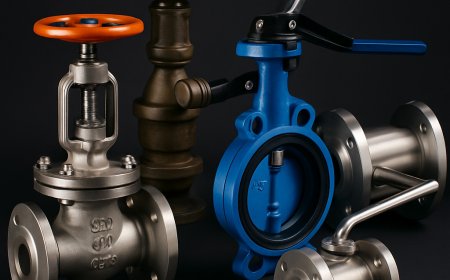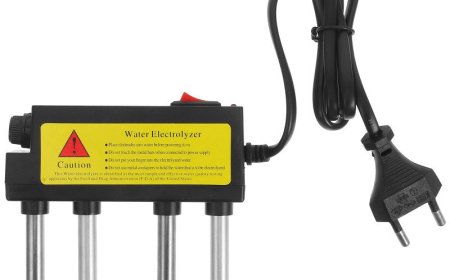Understanding Car Specifications Before Buying a Vehicle

When shopping for a new or used car, one of the most important things to consider is the vehicles specifications. Car specifications provide essential information about a cars performance, features, and capabilities. Whether youre a first-time buyer or an experienced driver, understanding these specs can help you make an informed decision and choose the right vehicle for your needs. In this article, well explain what car specifications are, why they matter, and how to read them effectively.
What Are Car Specifications?
Car specifications refer to the technical details and features of a vehicle. These details help describe the cars size, power, performance, safety, and comfort. Car specs are usually listed in brochures, websites, and user manuals.
Some common car specifications include:
-
Engine Type and Size
-
Horsepower and Torque
-
Transmission Type
-
Fuel Efficiency
-
Dimensions and Weight
-
Safety Features
-
Entertainment and Connectivity Options
Why Are Car Specifications Important?
Car specifications give you a clear picture of how a vehicle will perform on the road and how comfortable it will be for daily use. Heres why they matter:
-
Performance: Specifications help you understand how powerful the car is and how it handles different road conditions.
-
Fuel Economy: Specs show how efficient the car is, which affects long-term fuel costs.
-
Comfort and Space: Interior dimensions and seating capacity are crucial for families or long-distance drivers.
-
Safety: Safety specs like airbags, braking systems, and stability control ensure your protection.
-
Technology: Features like infotainment systems, navigation, and driver-assist technology enhance the driving experience.
Key Car Specifications Explained
Lets dive deeper into some of the most important car specifications you should know:
1. Engine Specifications
-
Type: Petrol, Diesel, Hybrid, or Electric.
-
Size: Measured in liters (e.g., 1.5L engine).
-
Cylinders: More cylinders typically mean more power (e.g., 4-cylinder, V6, V8).
2. Horsepower and Torque
-
Horsepower (HP): Measures engine power; more HP means faster acceleration.
-
Torque: Measures pulling power, important for towing or climbing hills.
3. Transmission
-
Manual Transmission: Offers control but requires shifting gears.
-
Automatic Transmission: Easier to drive, especially in traffic.
-
CVT (Continuously Variable Transmission): Smooth and fuel-efficient.
4. Fuel Efficiency
-
Measured in Miles Per Gallon (MPG) or Liters per 100 km (L/100km).
-
Important for saving money and reducing environmental impact.
5. Dimensions
-
Length, width, and height affect parking, garage space, and interior comfort.
-
Ground clearance matters for off-road or uneven terrain driving.
6. Cargo Capacity
-
Measured in liters or cubic feet.
-
Essential for families, travelers, or those who carry equipment.
7. Safety Features
-
Airbags, ABS brakes, Traction Control, Lane Assist, and more.
-
Always check crash-test ratings along with safety specs.
How to Read and Compare Car Specifications
When shopping for a car, youll likely compare multiple models. Heres how to use specifications to guide your decision:
-
Prioritize Your Needs: Decide if performance, fuel economy, or safety is your top priority.
-
Compare Similar Models: Focus on cars within the same category (SUVs, sedans, hatchbacks).
-
Test Drive: Specifications on paper tell part of the story, but a test drive confirms comfort and handling.
-
Check Reviews: Specifications combined with real-world reviews give the full picture.
Electric and Hybrid Car Specifications
With the rise of electric and hybrid cars, new specifications have become important:
-
Battery Capacity (kWh): Determines range.
-
Electric Range: How far the car can go on electric power.
-
Charging Time: How long it takes to fully charge the battery.
Understanding these specs is essential if youre considering a greener vehicle.
Where to Find Car Specifications
You can find detailed car specifications on:
-
Official manufacturer websites
-
Automotive review sites
-
Vehicle brochures and catalogs
-
Online car marketplaces
Always use reliable sources to ensure the specs are accurate and up to date.
Common Mistakes to Avoid
-
Ignoring Weight: Heavier vehicles can affect fuel economy.
-
Overlooking Safety: Dont prioritize speed over safety features.
-
Not Considering Resale Value: Some car features help maintain higher resale value.
Conclusion
Understanding car specifications is essential for making a smart car-buying decision. From engine power to safety features and comfort, every specification plays a role in your driving experience. Take the time to research, compare models, and choose the vehicle that best fits your lifestyle and needs. With this knowledge, youll drive away confident that youve made the right choice.






































